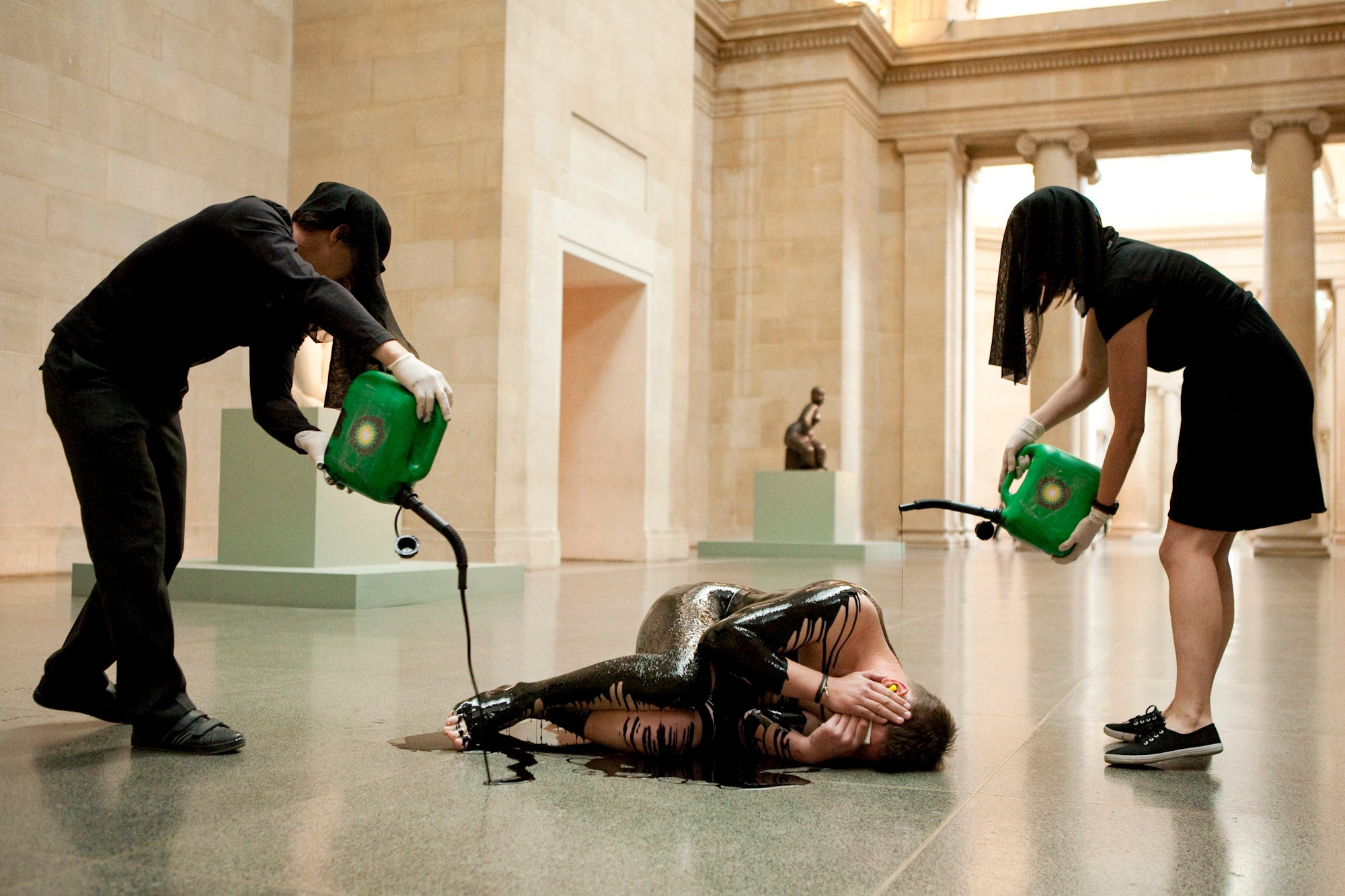Your support helps us to tell the story
This election is still a dead heat, according to most polls. In a fight with such wafer-thin margins, we need reporters on the ground talking to the people Trump and Harris are courting. Your support allows us to keep sending journalists to the story.
The Independent is trusted by 27 million Americans from across the entire political spectrum every month. Unlike many other quality news outlets, we choose not to lock you out of our reporting and analysis with paywalls. But quality journalism must still be paid for.
Help us keep bring these critical stories to light. Your support makes all the difference.
It has been announced that oil company BP will no longer sponsor art gallery Tate. This is a momentous shift in the debate around oil sponsorship of the arts.
BP had sponsored Tate for 26 years, and it will have been hard for the company to let the deal go. The amount of given was tiny considering the scale of visibility of the brand in the gallery - between 1990 to 2006 BP paid on average £224,000 a year, just half a percentage of Tate’s annual spending - to appear around the buildings.
The deal was worth hundreds of times as much in advertising terms. As Wendy Stephenson, whose Sponsorship Consulting assists BP, said in 2005: “Ten years ago a company would sponsor something, invite some people, have a nice party and walk away. Now they milk the sponsorship for what it’s worth because it’s a marketing activity just like advertising, or PR, or direct mail.”
For Tate, this turn of events follows widespread criticism of the partnership, the incongruence of which sat uneasily with Tate’s programming and public persona. BP is a company whose business model is seen by its critics as contributing toward destruction of the environment. April will see the sixth anniversary of the start of BP’s Deepwater Horizon oil spill disaster.
On the other hand Tate has recently installed solar panels on Tate Modern’s roof and held several events dealing directly with the climate change. Its collection contains the works of numerous artists that have spoken out against BP, such as Conrad Atkinson, Sonia Boyce and Margaret Harrison and deceased artists I imagine would have strong reactions, like co-founder of the German Green Party Joseph Beuys.
This shift shows the power and importance of grassroots groups to build pressure and make change happen. Emblematic of these efforts is the art collective that I am part of, Liberate Tate, an entirely unfunded artists' collective which has made numerous unsanctioned performance interventions inside Tate gallery spaces to open up a critical and creative debate around BP sponsorship over the past six years.
We poured oil over a naked man in Tate Britain in 2011. We assembled a 16.5 metre long wind turbine blade in Tate Modern in 2012. We slept overnight in the Turbine Hall scrawling texts on oil, art and climate change across the floor in charcoal in 2015. On the eve of the Paris climate talks we tattooed twenty performers with the parts per million of carbon dioxide in the earth’s atmosphere in the year of their birth.
Numerous other groups around the world have cropped up to challenge oil sponsorship, with successful campaigns in Norway and the US to protect cultural institutions from Statoil, the Koch dynasty, Shell and others. In December ten performers were arrested at the Louvre, Paris, protesting Total and Eni sponsorship.
The impetus is now on other cultural institutions in the UK to follow suit and end oil sponsorship. Tate is a global leader, and the likes of the British Museum, the Royal Opera House, the National Portrait Gallery and the Science Museum must now end their sponsorship deals with BP too.

Join our commenting forum
Join thought-provoking conversations, follow other Independent readers and see their replies
Comments